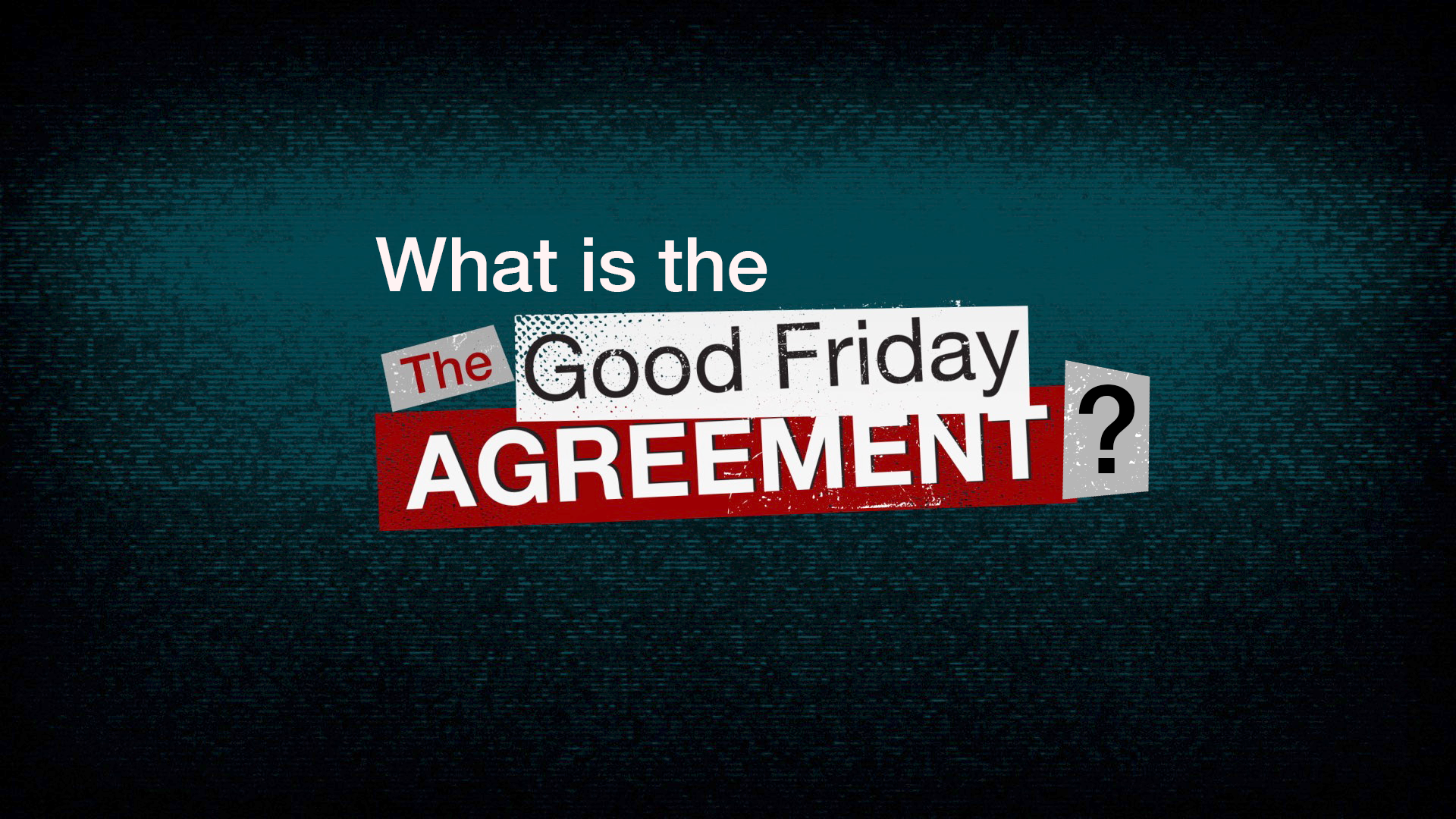NI election 2022: A shock to the system for DUP, but unsurprising
- Published
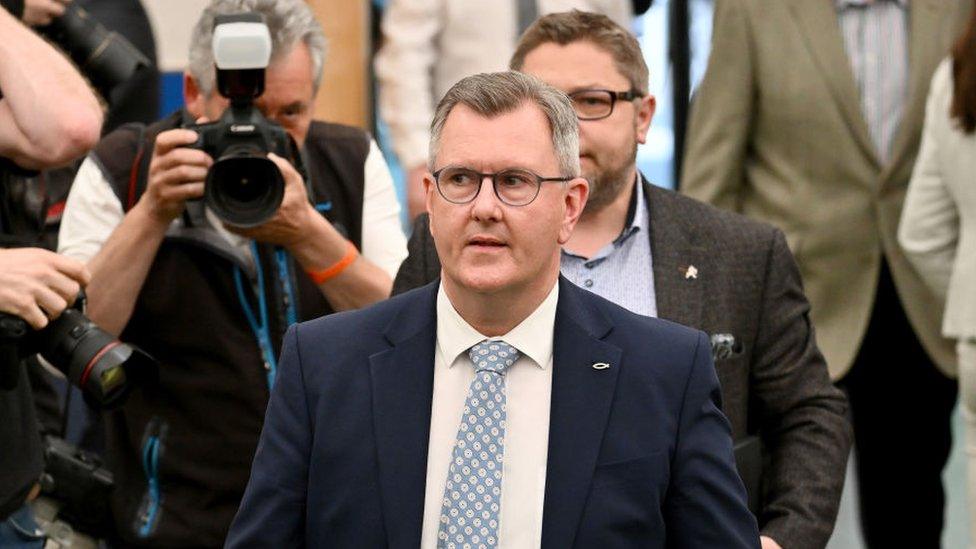
DUP leader Sir Jeffrey arrives at Meadowbank count centre
Last year Northern Ireland marked its centenary.
An anniversary regarded by unionists as a cause for celebration, the creation of a life raft for those intent on preserving their British identity as the rest of the island broke away from the UK.
However nationalists viewed the moment as a time to deeply regret the partition of Ireland they hope will one day be reversed.
Unionists wanted a memorial stone erected at Stormont, but Sinn Féin said no.
In their view there's already quite enough unionist statues and plaques scattered around the estate.
For 100 years, the words Stormont and unionism have tripped off the tongue together.
The old unionist-dominated parliament was suspended in the early years of the Troubles and unionists had to be carried out of it loudly protesting.
The new power-sharing administration ushered in by the Good Friday Agreement proved a very different beast.
Even so, in the quarter of a century since then a unionist always occupied the first minister's position, first via the Ulster Unionist David Trimble, then courtesy of Ian Paisley and his Democratic Unionist Party (DUP) successors.
Equal roles - but symbolism counts
Under the 1998 deal, Stormont's power couple were elected as a team.
But when the DUP and Sinn Féin agreed to share power in 2007, those rules were changed to enable automatic appointments to be made based on party strengths.
That opened the door to Michelle O'Neill's latest potential promotion.
It's true the powers and responsibilities of the first and deputy first ministers are exactly the same, but you can point that out in vain.
Northern Ireland is a place where titles and symbolism count.
DUP halcyon days now long ago
For the DUP, the election outcome is a shock to the system.
But it's hardly surprising after all its internal bloodletting over the controversial post-Brexit trading arrangements which put a trade border between Great Britain and Northern Ireland.
Treating Northern Ireland as, economically, another country from the rest of the UK was always going to raise unionist hackles.
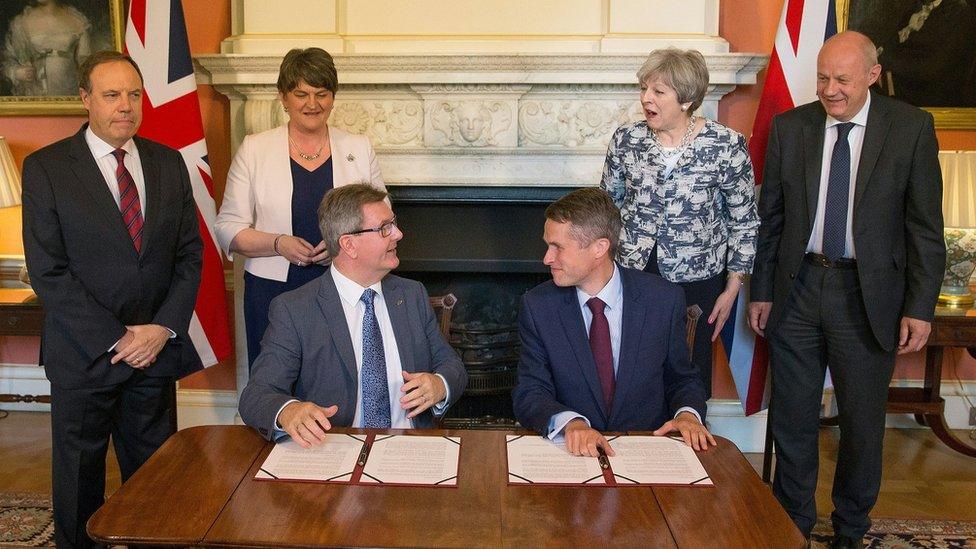
The DUP were kingmakers after the 2017 General Election - but those days are long ago
First Arlene Foster and then Edwin Poots fell from grace, leaving Sir Jeffrey Donaldson to pick up the pieces.
The DUP's halcyon days, when its MPs held the Westminster balance of power, seem long ago, even though the choices made then sowed the seeds which Sir Jeffrey is reaping now.
The DUP and unionism in general will take some time to absorb this election outcome.
Unionist tug-of-war ahead
It may take weeks or months to find a formula which assuages unionist concerns over the Brexit protocol while keeping the election victors, Sinn Féin, onside.
Expect a tug-of-war between those unionists and loyalists who insist only a hard line will deliver the complete removal of the protocol, and those prepared to settle for pragmatic fixes.
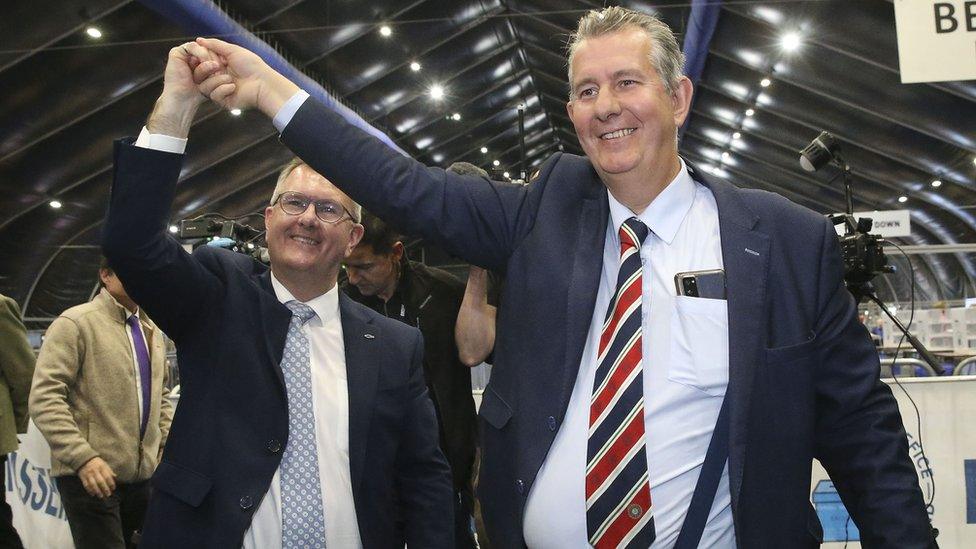
Edwin Poots was elected in South Belfast, Sir Jeffrey in Lagan Valley
Beyond these immediate protocol concerns, unionism is struggling with a long-term picture in which demographic trends have led to a growing nationalist community.
Moreover many younger voters find the DUP's stances on social, cultural and identity issues unattractive and are increasingly rejecting traditional orange and green politics altogether.
Although the DUP now represents only 21% of the vote, unionism as a whole still accounts for just over 40%.
Uncertain future
But nationalism is also on roughly 40%, while the centre-ground Alliance Party makes up the vast bulk of the other 20% - potentially a key swing vote in any future referendum on Irish unity.
Unionists can no longer stroll around Stormont as if they own the place, as they did in the early decades of the parliament.
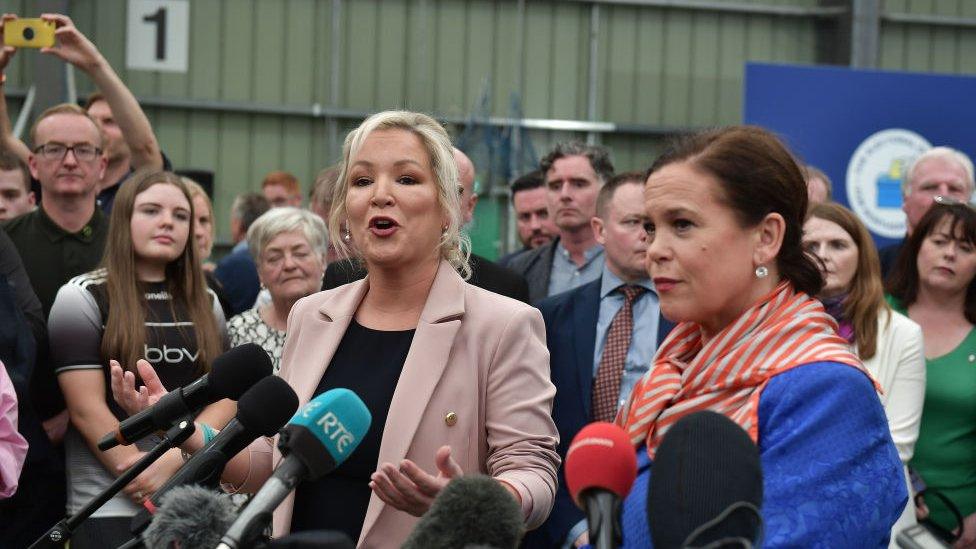
Michelle O'Neill (left) and Sinn Féin leader Mary-Lou McDonald - it's been a historic election for the party
Some who once scorned the Good Friday Agreement are now glad it incorporated minority safeguards, but annoyed they weren't applied to the protocol.
Although a border poll on Irish unity remains some considerable way off, the future of unionism seems uncertain.
Disputes over the first minister's job title, or whether a plaque or a memorial stone is installed somewhere, may in time be the least of their worries.
- Published12 May 2022
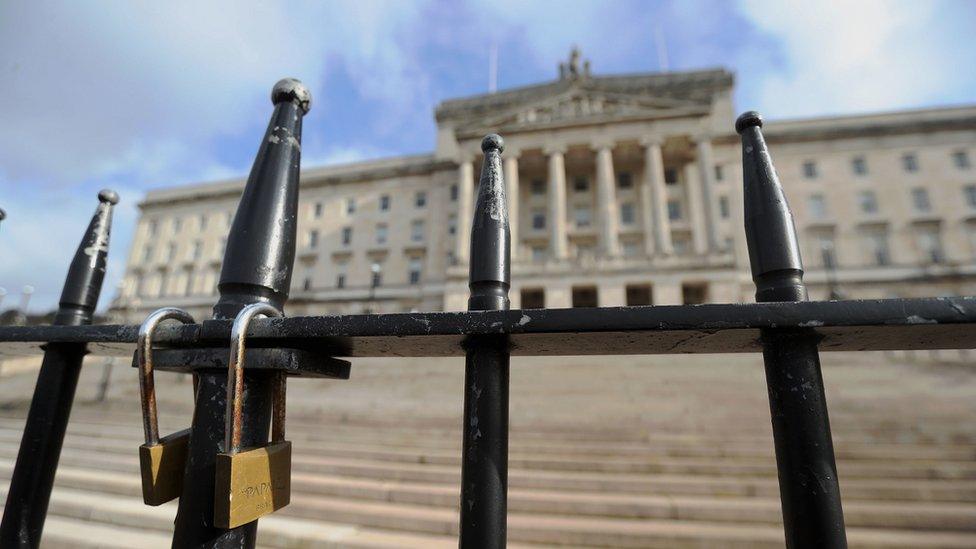
- Published7 May 2022
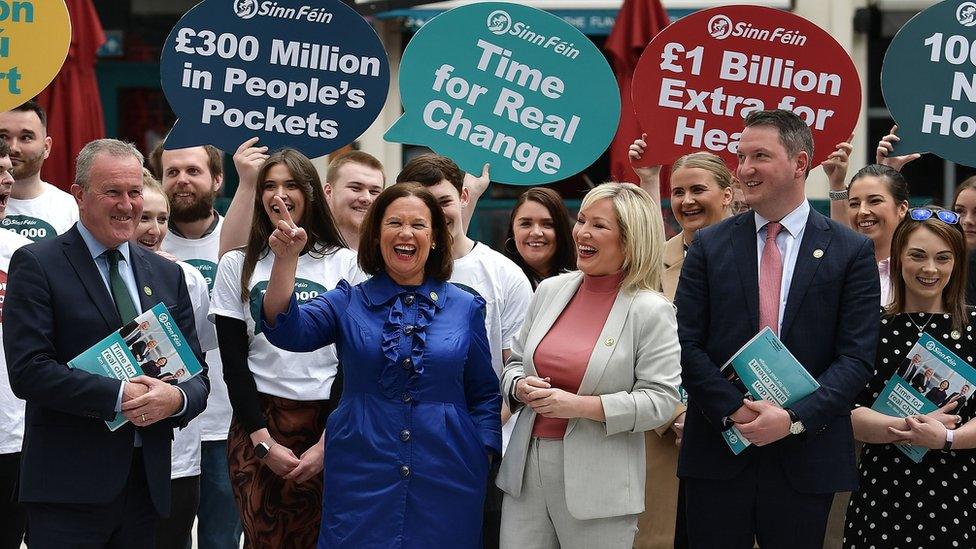
- Published8 May 2022

- Published10 April 2018
